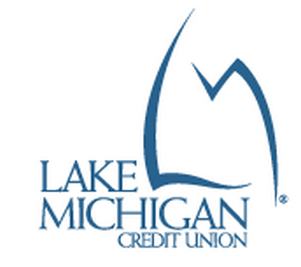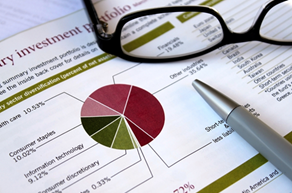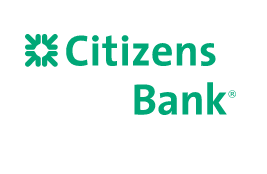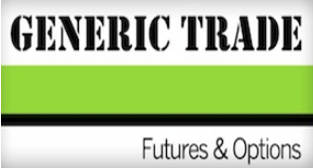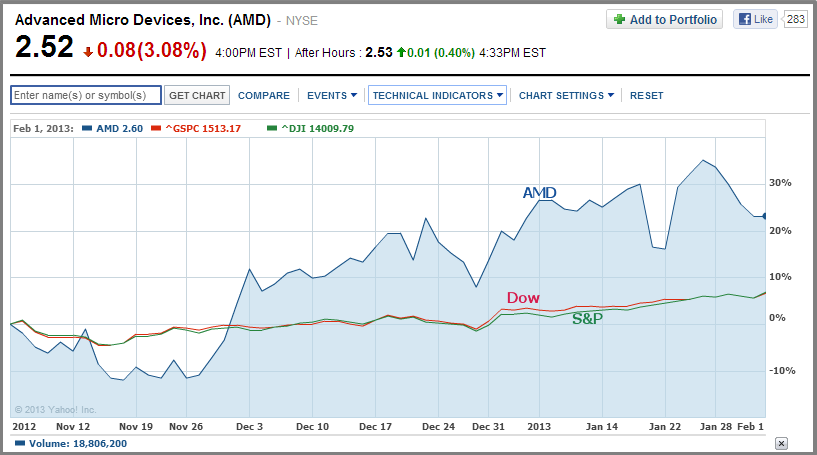How the mighty have fallen. In April of 2010, Hewlett-Packard’s stock (HPQ) peaked at $54.5 a share. Today these same shares are trading around $14. That’s a decline of 74% in less than three years! During the same time period, the overall market (Dow, S&P 500 & NASDAQ) has climbed by an average of 17%.
Although other companies in the area of diversified computers have also experienced a decline in their share prices, none have been beaten down as much as HP, considered the industry leader in global PC sales. There are multiple factors contributing to HP’s demise.
[related1][/related1]
Decline in PC Demand
HP is faced with a slowdown in its PC business, as consumers make a fundamental shift to tablets and other mobile platforms. At the company’s financial analyst day in San Francisco two months ago, its management painted a bleak financial outlook and noted that weak demand, a highly competitive environment and macro challenges are impacting their PC business. The company is looking to cut 25 percent of its PC models as it expands its footprint in the tablet market. Financial analysts, however, doubt that HP can gain significant share in the tablet and laptop markets due to its late entry into these markets.
[newsletter2][/newsletter2]
$8.8 Billion Autonomy Write-off
Hewlett Packard recently announced that it will be forced to write off $8.8B of the $11B it spent acquiring Autonomy, a software company, as part of a bigger push to aggressively expand into software. Previously hailed as a turning point for HP, the acquisition has now become a legal, financial capital and management nightmare. On November 20, 2012, HP announced it had been duped into purchasing Autonomy. "There appears to have been a willful sustained effort to inflate Autonomy's revenue and profitability,” said Chief Executive Meg Whitman. “This was designed to be hidden." HP also reported that it had “alerted the U.S. Securities and Exchange Commission and the U.K. Serious Fraud Office and requested that they open investigations. The SEC and Federal Bureau of Investigation are launching inquiries, according to people familiar with the probes.”
Earnings and Valuation Worries
Since 2010, HP’s income figures have been on a decline. It reported annual net income (revenue minus expenses and taxes) of $8.76B in 2010. That number declined to $7B in 2011. In 2012, it dropped to a whopping -$12.6B, partly due to write downs in its Autonomy acquisition. The company’s growth rates are also on a decline. Earnings per share (an indicator of a company's profitability) is -297% over the trailing 12 months (TTM), compared with the industry average of +18.7%. Revenue growth is -5.41% (TTM) compared with a positive industry average of 39.81%. HP’s Net Profits is down -10.51% (TTM) compared with the industry average of 22.73%. Based on the numbers, it looks like HP is underperforming an industry to which it is considered a leader.
[related1][/related1]
Moody’s Downgrade
Moody’s has recently downgraded HP to Baa1 from A3 and slashed its outlook to negative, citing competition pressures and improper execution capabilities. Richard Lane, a Moody’s senior vice president, said, “Although HP will maintain strong to leading positions in a number of product areas, the company’s credit profile will remain weaker than previously expected over the intermediate term.” He also added that sales as well as profit margins will continue to decline.
Bankruptcy worries
The picture coming out of the credit markets are worrisome for HP investors, as the price for insurance against a HP default increases. This is similar to when your car insurance payment increases because your insurance company believes you have become a higher risk. In the credit markets, investors who own HP bonds pay a premium for insurance against HP going bankrupt. This insurance is in the form of a credit default swap (CDS). If HP defaults on paying its bonds, the investor gets an “insurance payment”. According to a recent WSJ article, “The price of credit default swaps on Hewlett-Packard’s bonds hit a new high Tuesday, but that’s to be expected when you take an $8.8 billion write-down on a purchase a veritable Greek chorus warned you not to make…The annual cost of protecting $10 million H-P bonds for three years jumped 20% to $250,000 on the news while the price of two-year protection rose 26% to $125,000, according to Markit.”
The overall picture is this: investors now fear a higher possibility of HP going bankrupt. But are their fears being blown out of proportion? Is recovery for this stock but a dream, or can Hewlett Packard somehow stop itself from falling off a cliff and turn itself around? Only time will tell.
[related2][/related2]



